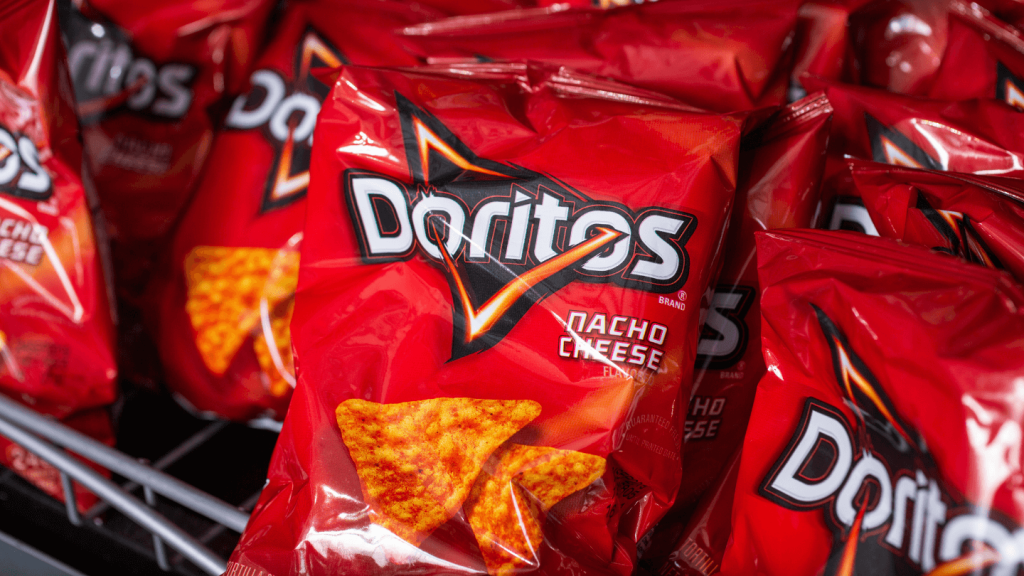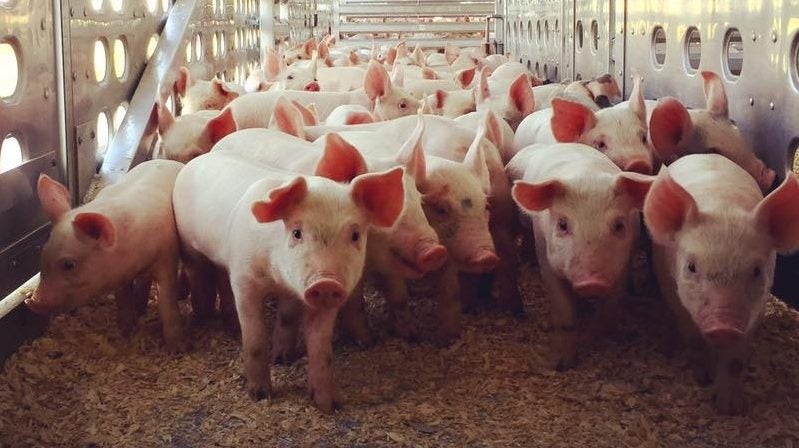When a major food business announces it is hiving off a part of its operation, a clutch of questions are immediately triggered.
Why is the company doing it? Is there a problem it is trying to solve or a previously-overlooked opportunity of which it is seeking to take advantage?
And what are the prospects of the move achieving what the business suggests it will?
Distinct entities
This week, Canadian protein heavyweight Maple Leaf Foods announced it is spinning off its pork business.
The plan is to set up two distinct publicly-listed entities: the existing Maple Leaf Foods as a packaged food business, with a portfolio of prepared meat, poultry products and plant-based meat alternatives; and a new, as-yet-unnamed, stand-alone company that will be based on Maple Leaf’s existing pork operation.
Maple Leaf will hold a 19.9% interest in the new pork company, which will continue to supply the prepared-foods business as an “anchor customer”. The new entity will be headed up by former Smithfield Foods' executive Dennis Organ, who has overseen Maple Leaf’s pork operations since 2023.
The separation is expected to be completed next year, if, as expected, shareholders approve the move. The board and Maple Leaf’s largest shareholder, the McCain family – the owner of the Canada-based French fries business – have already approved the plan.
A more focused Maple Leaf
In a lengthy call with analysts after the initiative was announced on Tuesday (9 July), Maple Leaf president and CEO Curtis Frank said the move will “create a more focused packaged goods company” and “unlock the full potential of two distinct businesses”.
The analysts were keen to understand the thinking behind the decision and what it is likely to mean in terms of future performance.
Frank told them: “Both companies will now have a sharper focus on the opportunities in their respective growth strategies.”
He added that Maple Leaf Foods will have a “considerably reduced commodity exposure”.
In the statement accompanying the spin-off news, chairman Michael McCain said: “Our shareholders will be able to participate in not one, but two strong, independent, sustainable and purpose-driven businesses, each with a clear mandate and investment profile, and all our stakeholders will participate in the shared value we will generate.”
Why not sell the pork operation?
Asked by an analyst why instead of a spin-off Maple Leaf did not simply sell the pork business, Frank replied: “Ultimately we think this is the greater path to value creation for the two companies and the importance of the supply arrangement and relationship that exists strategically between the two companies. We thought this was the appropriate structure to create economic value.”
New pork company boss Organ added: “The reason I wouldn’t sell it is that I believe too much in its future. There are numerous investment opportunities as well as capacity expansion. The future is really bright here once we get the tailwinds behind us.”
He added: “There’s a strong history of profitability in our pork business.”
The capacity expansion Organ mentioned is linked to the company’s pork processing facility in Brandon, Manitoba, which is operating below capacity.
Headwinds in recent times have included rampant feed cost inflation but Frank told analysts things are now starting to normalise.
Margins questioned
In terms of precedents for such a move, US cereal giant Kellogg announced it was splitting its business in two in 2022 – breakfast cereals in North America under the WK Kellogg name and Kellanova, centred on snacks, frozen foods and the rest-of-the-world cereals market.
A year later, WK Kellogg said it saw margin expansion as key to the strategies of the new businesses and Maple Leaf was asked about margins in the call with analysts.
Maple Leaf revealed pro-forma results for the 12 months to 31 March based on the businesses having already separated. As well as revealing revenues of C$3.68bn ($2.69bn) for Maple Leaf and C$1.7bn for the pork operation, it showed an adjusted EBITDA margin of 11% for the packaged food business and 4% for the pork company.
Defending that 4% figure, company chairman Michael McCain said: “What this business has experienced in the last two to three years has nothing to do with cycles but it is gross disfunction as a result of macro, geopolitical issues unprecedented in my 30 years in the industry.
“Four per cent looks like a low number but I see it as a colossal victory. Pull out the pure-play pork industry numbers and you will see numbers that are deeply red.”
Upstream and downstream issues
Expanding in the analysts’ call on why the separation made sense, McCain said: “The challenge in keeping upstream and downstream businesses together in a portfolio becomes restrictive, for each one of them.
“The CPG company inside that mixture doesn’t have its virtue properly unlocked in capital markets,” adding that “the upstream business becomes restricted in its opportunities and capital availability to grow the business”.
He said: “The amalgamation doesn’t want to increase the capital exposure to that upstream business when it is combined. In most of the examples, a separation like this makes really good sense to both unlock the value in the CPG company and to unleash the potential for growth in the upstream business. That’s the overarching ‘why?’ here.”
Frank added: “Dennis [Organ]’s opportunities for growth are limited today being part of the Maple Leaf supply chain.
“Unleashed means him having countless opportunities to expand in the marketplace. He would simply not be able to do that as part of the Maple Leaf supply chain.”
Frank said that, timing-wise, the move made sense as the company had just completed a “very significant capital investment programme” in the prepared foods business.
“The timing of putting that behind us, combined with the normalisation of the pork market, makes it a completely appropriate time to engage in this transaction.”
Analysts respond
The response from analysts covering the current Maple Leaf Foods to the spin-off announcement has been cautiously optimistic.
Luke Hannan of Cancord Genuity Corp. said: “In our view, the proposed transaction is an elegant way to address Maple Leaf’s long-standing compressed trading multiple and is a net positive for shareholders.
“Investors can now assign a higher multiple for Maple Leaf’s CPG business featuring leading brands, which should more than offset the lower multiple placed on the cyclical/commodity-exposed pork business.”
Hannan said that he thought the move provides “an opportunity for an incentive plan to be established within the pork entity that is more directly aligned with that business’ key value drivers,” adding: “Moreover, the new structure provides greater optionality for M&A within the pork vertical.”
A plan to isolate the CPG business as a positive step. However, there are substantial questions about the new entities that remain unanswered
Mark Petrie, CIBC
Fellow analyst Mark Petrie of CIBC is also largely positive about the move.
“By spinning out its pork business, Maple Leaf addresses a fundamental issue in its current structure – the inherent and unavoidable volatility of the commodity – which should broaden the investor base over time,” he said.
“In that light, we view the announcement of a plan to isolate the CPG business as a positive step.”
But introducing a note of caution, he said: “However, there are substantial questions about the new entities that remain unanswered and we expect Maple Leaf will need to further demonstrate the expected stability and margin potential of the CPG business in order to get full value in the market.”
Petrie notes that Maple Leaf did not provide a bridge from the current 14-16% EBITDA margin targets that the company is working toward.
“Our rough math suggests an implied range of 14%-16.5% for the new Maple Leaf Foods, though this could be circa 100-150 bps higher depending on how the pro-forma inter-company sales impact financials. While there is no new target yet, we do expect one in time, and importantly, the company was clear that there is no change in its confidence in the levers to achieve that level within the current structure.”
Value creation demonstration necessary
On the new pork business, Petrie said: “While conditions have improved substantially over the last several months, we expect that investors will be hesitant to ascribe too much value until the new entity can demonstrate its ability to create value – both top and bottom line.
“We acknowledge that being separate from Maple Leaf will open new doors and there is also low-hanging fruit in the operating efficiencies today but we will need more disclosure to gain clarity and confidence in the timing and sustainability of improvements.”
I remain sceptical about the potential benefits of this spin-off
Sylvain Charlebois, Dalhousie University
Less than enthusiastic about Maple Leaf's spin-off plan was Sylvain Charlebois, a professor in food distribution and policy at the Faculties of Management and Agriculture at Dalhousie University.
He said: “This spin-off is designed to isolate one division from the volatility of the others. Given the cyclical nature of the pork market, the question remains whether the two companies, once independent, will outperform their combined entity. I remain sceptical about the potential benefits of this spin-off.
“Notably, Kellogg's executed a similar strategy last year and has yet to realise significant positive outcomes.”
He added: “I see that the company is optimistic about expanding the pork business with a new structure. However, I have some concerns about the timing. Why now and not a few years ago? The profitability of pork has mainly been due to favourable supply-side factors. I'm not convinced that they can rely on growing demand for pork to support the company's expansion.
“Despite the company's narrative, I see this move more as a valuation play than a market-focused strategy.”
Analysts will be hoping that Maple Leaf will be able to provide more detail on its plans when it releases its Q2 results in early August.
















